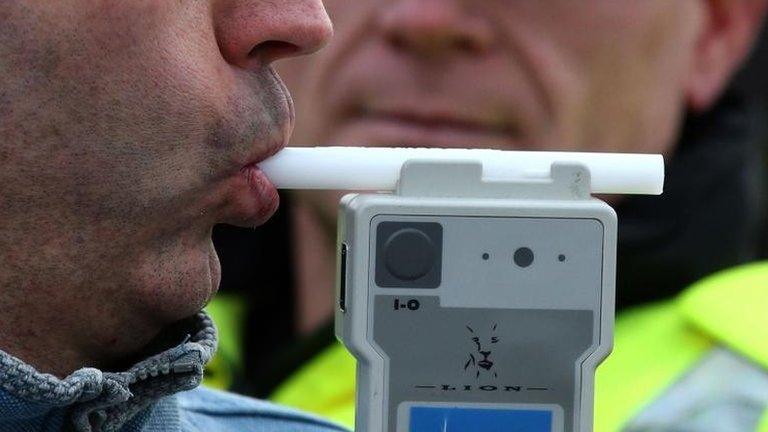Drivers face police checkpoint breath tests
- Published
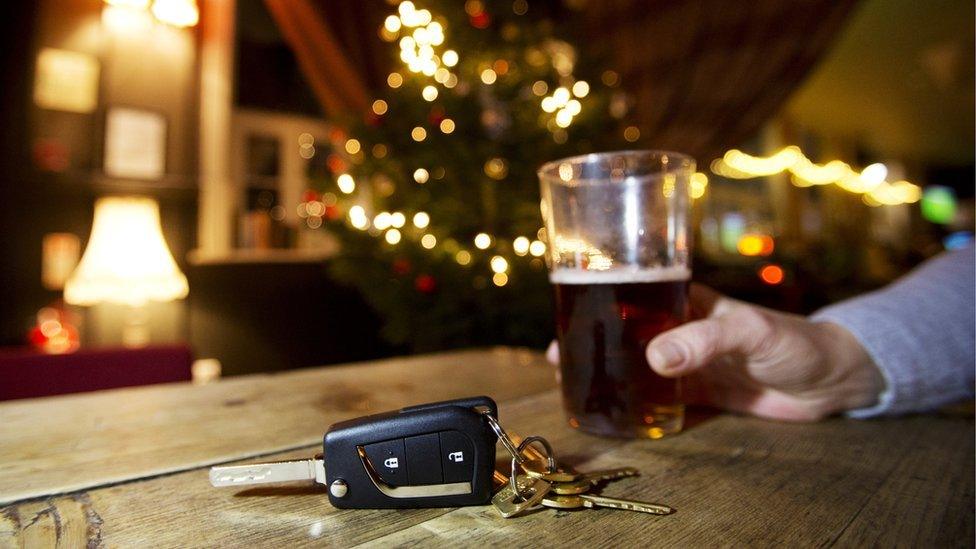
Police said there was no safe limit and that motorists should never drink and drive
Police are to conduct random breath tests at vehicle checkpoints as a result of new legislation in a bid to crack down on drink-driving.
The new measure comes into force on Friday as police launch their annual winter drink-drive campaign.
Previously, police needed reasonable suspicion before asking a driver to take a breath test.
The new legislation was passed through the Assembly in April, but this is the first time it has been used by police.
'Stupid risks'
The PSNI said there was no safe limit and that motorists should never drink and drive.
Assistant Chief Constable Alan Todd said the new legislation gave police "another tool that will hopefully help us to prevent people taking life-threatening, unacceptable, simply stupid risks".
"Previously, police officers needed a reasonable suspicion about the manner of someone's driving, have seen a moving traffic offence, or been called to a collision before requiring a preliminary breath test from a driver," he said.
"The new legislation means we can now establish vehicle checkpoints solely for the purpose of carrying out random breath tests, something which we hope will act as an even more visible, physical deterrent."
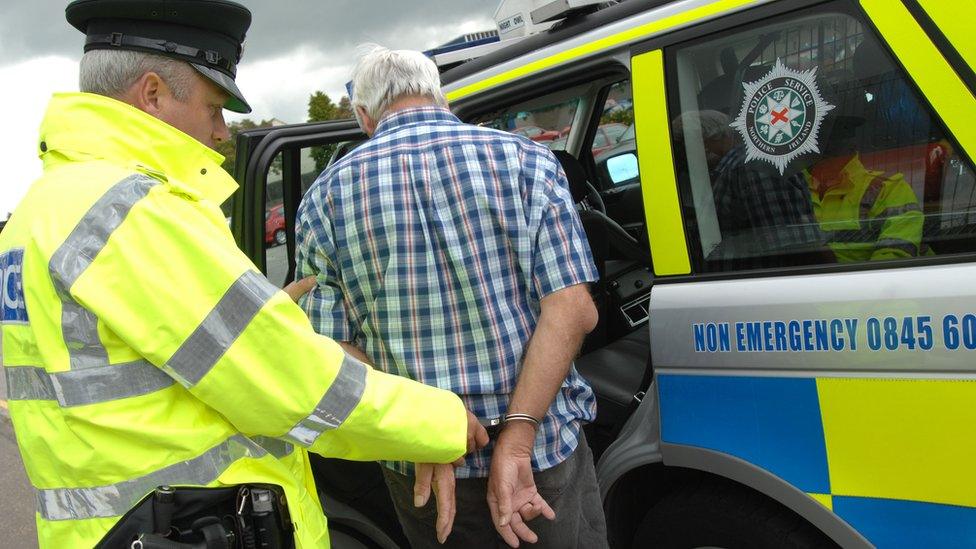
Police said just one drink can impair a motorist's ability to drive
During last year's operation, almost 400 people were caught drink-driving by police.
"Just one drink can impair ability to drive. Considering that in some instances, we have stopped drivers who were so drunk, they could barely stand when they got out of their vehicle, just beggars belief," said Ass Chief Const Todd.
"At the other end of the spectrum, we detected some drivers who had gone out socialising and not intended to drive, but their circumstances changed and they decided to take a risk. A risk which inevitably results in a driving ban."
Police said they would also be working with officers from the Irish police traffic department in border counties.
"In addition to the checkpoints, any driver or motorcyclist we stop, whether for speeding, using a mobile phone, or committing any moving traffic offence can expect to be breathalysed," he added.
"So too can anyone involved in a collision or who we suspect may have consumed alcohol or taken drugs."
- Published15 January 2016
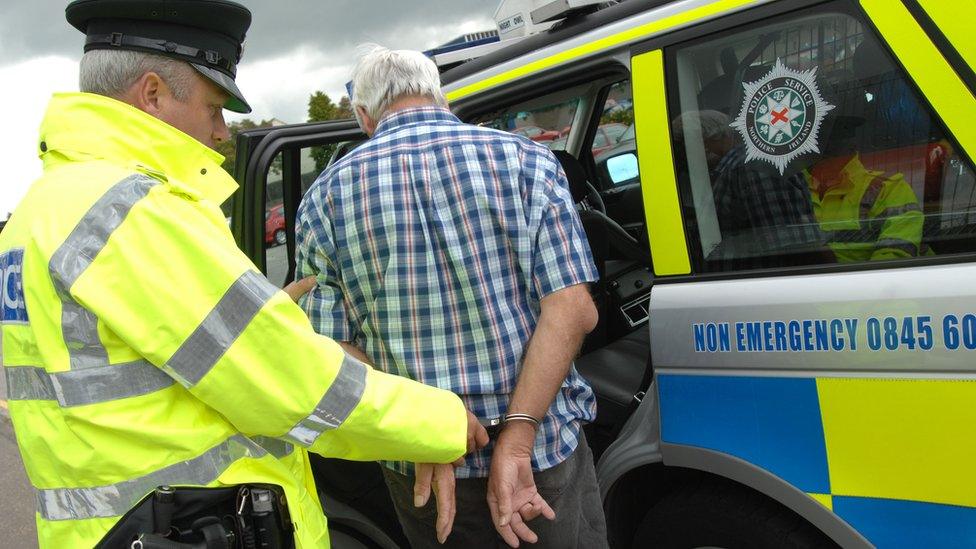
- Published1 January 2016
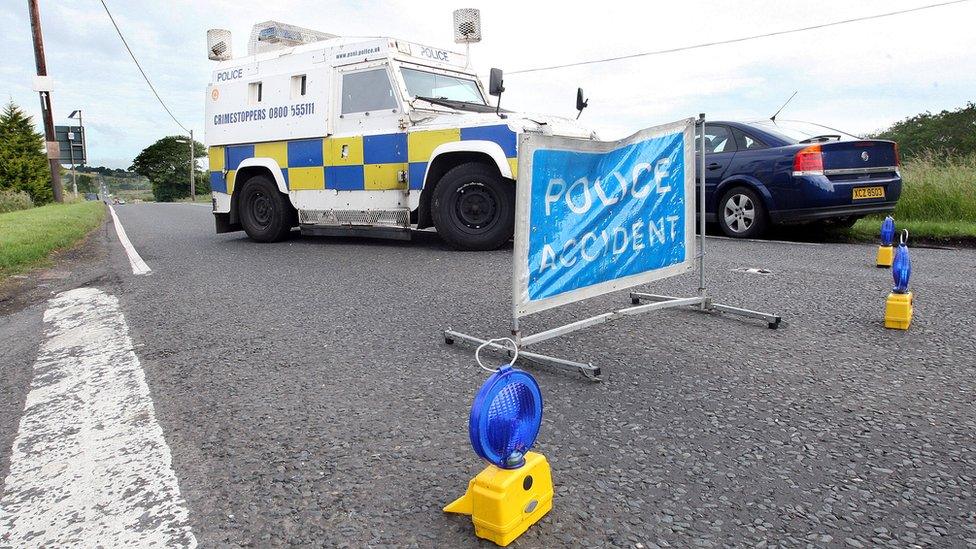
- Published16 January 2015
